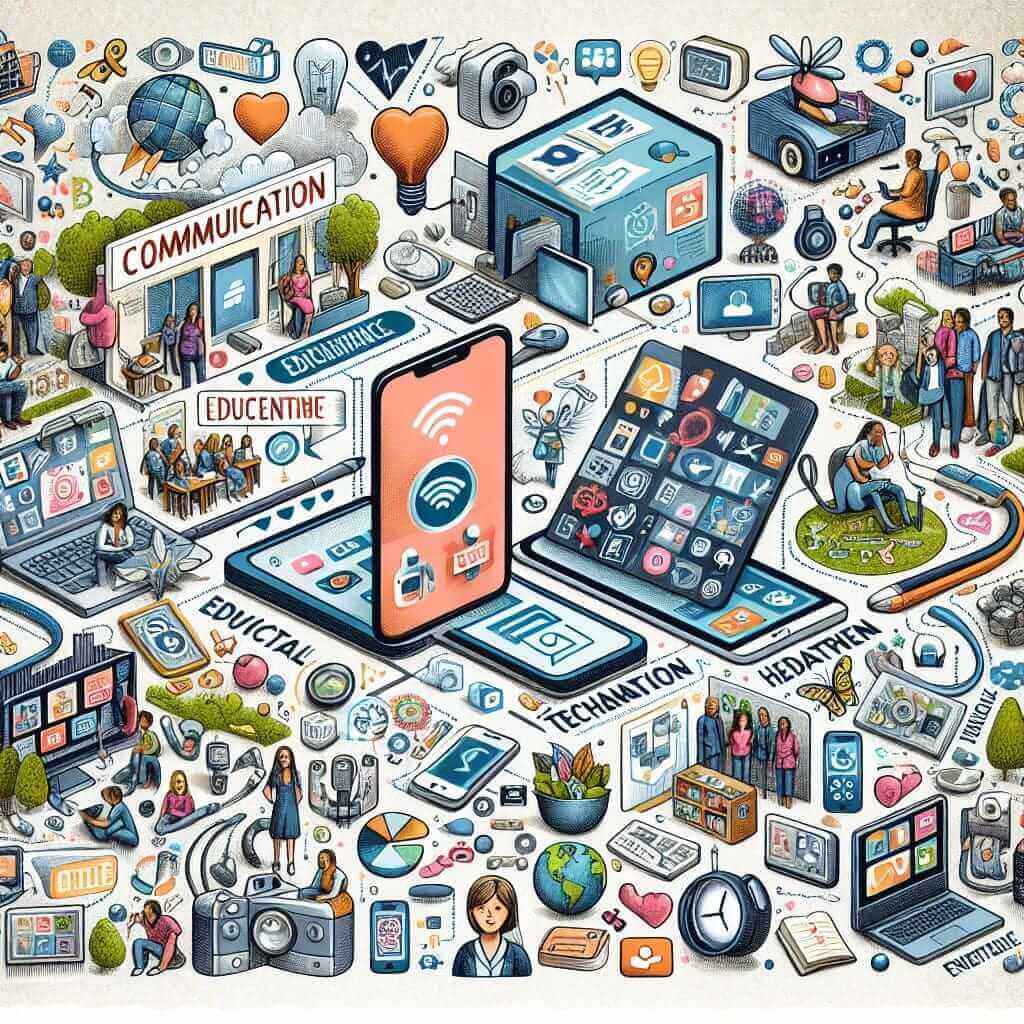In the realm of IELTS, particularly in the Speaking test, the topic of “technology” frequently emerges, prompting candidates to showcase their language proficiency while discussing its multifaceted aspects. As an IELTS instructor with over two decades of experience, I’ve witnessed firsthand how this seemingly broad topic can become a springboard for insightful discussions and impressive responses.
This comprehensive guide delves into the significance of “technology” within the IELTS framework, offering practical strategies and insider tips to empower you to navigate this topic with confidence.
What Does “Technology” Mean in the Context of IELTS?
“Technology” in IELTS extends beyond mere gadgets and gizmos. It encompasses a wide array of themes, including:
- Communication Technology: Smartphones, social media, the internet, and their influence on communication patterns and social interactions.
- Information Technology: Data storage, artificial intelligence, cybersecurity, and the impact of these advancements on various industries.
- Entertainment Technology: Streaming services, virtual reality, video games, and the evolving landscape of leisure activities.
- Educational Technology: Online learning platforms, digital resources, and the role of technology in modern education.
- Medical Technology: Advancements in healthcare, medical devices, telemedicine, and their impact on patient care.

Mastering the Art of Discussing “Technology” in IELTS
To excel in IELTS Speaking tasks related to “technology,” consider these effective approaches:
1. Develop a Broad Vocabulary
Equip yourself with a diverse range of vocabulary related to technology. Instead of resorting to generic terms, explore synonyms, and learn specific terms related to various technological fields. For instance:
- Instead of “good,” use: beneficial, advantageous, valuable, effective
- Instead of “bad,” use: detrimental, adverse, harmful, unfavorable
2. Provide Concrete Examples
Support your points with real-world examples to demonstrate your understanding. Instead of simply stating that “technology has revolutionized communication,” elaborate by saying, “Platforms like WhatsApp and Zoom have made instant communication across continents effortless, bridging geographical barriers.”
3. Offer Balanced Perspectives
Avoid being one-sided in your opinions. Acknowledge both the advantages and disadvantages of technological advancements. For instance, while discussing social media, mention its ability to connect people but also address concerns related to privacy and misinformation.
Example IELTS Speaking Questions on “Technology”
- How has technology changed the way we communicate?
- What are the potential benefits and drawbacks of artificial intelligence?
- Do you think technology has had a positive or negative impact on education?
- Discuss the role of technology in modern healthcare.
Tips for Success:
- Stay Updated: Regularly read articles and watch documentaries about current technological advancements to stay informed and provide relevant examples during your exam.
- Practice Speaking: Engage in conversations about technology with friends, family, or language partners to enhance fluency and pronunciation.
- Record Yourself: Practice answering sample IELTS Speaking questions while recording yourself. This allows you to identify areas for improvement in your delivery and content.
Conclusion:
“Technology” is an integral aspect of the IELTS exam, reflecting its pervasiveness in our lives. By developing a strong vocabulary, providing concrete examples, offering balanced perspectives, and staying updated on current trends, you can confidently navigate this topic and achieve your desired IELTS score. Remember, consistent practice and a genuine interest in the subject matter will be your greatest assets in mastering this crucial area.